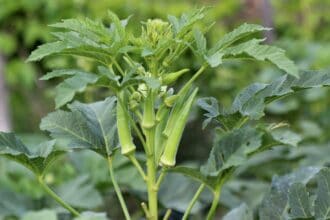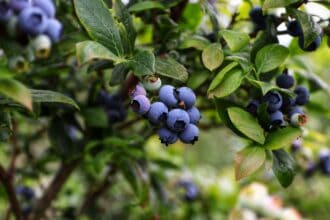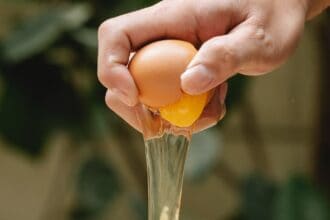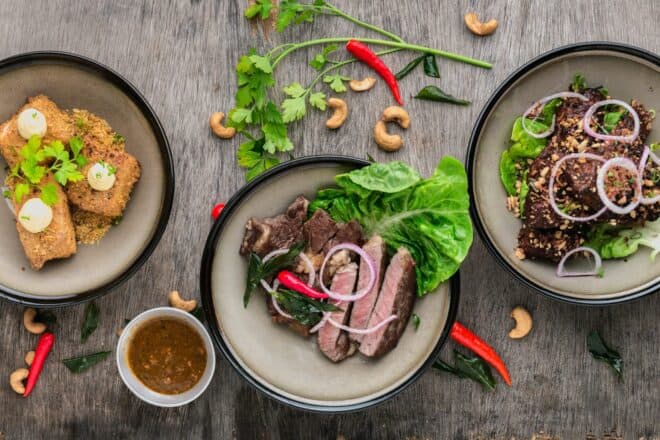
via: Unsplash / Lily Banse
It's the ultimate battle between organic vs inorganic food.
Since I've written a lot about growing your own food, I know how important it is to eat healthily. It's high time you find out the difference between organic and inorganic food. Is organic food better for you?
Today, you'll discover the answer and the reason behind it. Let's get started!
Contents
Organic vs Inorganic Food: Understanding The Labels
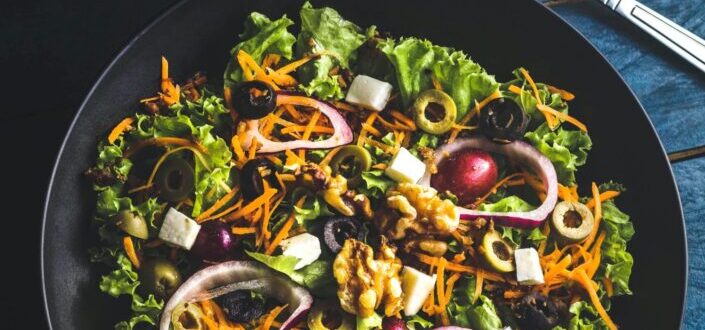
via: Unsplash / Eiliv-Sonas Aceron
What does “organic” mean anyway?
The term "organic" refers to the method in which agricultural products are grown and processed. In the U.S., crops are considered organic when they are grown without the use of synthetic herbicides, pesticides, fertilizers, and GMOs.
Organic livestock raised for meat, eggs, and dairy products must be raised in living conditions that can accommodate their natural behaviors, like being able to graze on pasture. They should also be fed organic feed and forage. They should be free from antibiotics, growth hormones, or any animal by-products.
Let's talk about labels. Most organic products will have the word "organic" on their labels, but how do we know for sure they are legitimately organic? First off, check if there are indications like "100% organic." Some will even have a seal of "USDA Organic." If you see a product labeled "Made with organic ingredients," it means it contains at least 70% organic content.
Food labeled "organic" must have at least 95% organic ingredients, excluding water and salt. You don't have to worry too much about being cheated out of these labels. A law in the U.S. can penalize anyone who falsely claims that their product is organic.
In most cases, food grown and processed according to the federal standards will bear the seal "USDA Organic." If you see a product with "transitional" on the label, it means the farmer produced it during the three-year conversion period from conventional to organic.
Why Organic Is Often A Better Choice
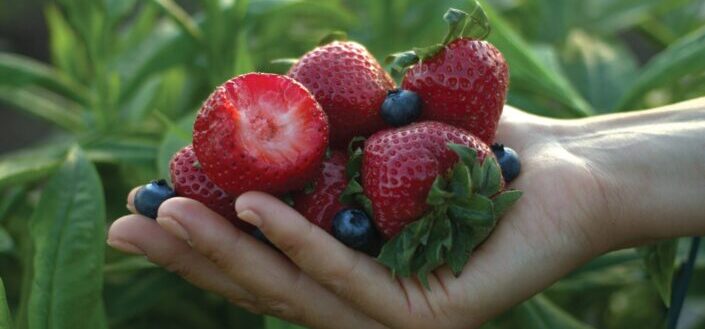
via: Unsplash / Anna Pelzer
With all the new advances in food and cooking, it’s getting harder to keep a nutritious diet. That's why there are also many alternatives to processed food that we can choose from to help us maintain a clean and healthy diet. Organic food, for instance, is one of the best choices to clean up your eating habits.
1. Fat, but healthy!

via: Unsplash / Lidye
Organic livestock requires only grass and natural food for their diets. These result in higher levels of omega-3 fatty acids. This kind of fat is more heart-healthy than other fats you can find in conventional food. We can find omega-3 in organic meats, dairy, and eggs. Rather than buying fatty processed food, you should choose organic produce instead. Food rich in omega-3 is a great energy source to help keep your heart, lungs, blood vessels, and immune system working well.
2. Put the pesticide on the side, please.

via: Unsplash / Arjun MJ
Compared to conventional crops, organically grown produce has lower detectable levels of pesticide residue. Though organic produce is not exactly pesticide-free, organic pesticides used for organic food production have natural substances like lime sulfur and hydrogen peroxide. Conventional farming uses a bevy of pesticides that can be harmful in the long run. By using this, we curb the need for artificial chemicals that inorganic foods have.
3. Choices, choices.

via: Unsplash / Joseph Gonzalez
There are various organic food items you can get from your local grocery store. They will also allow you to experiment with new recipes. You will find that you never really needed that pack of bacon or fish sticks without a single healthy nutrient in them. There are healthier options you can get, which might even taste better. You never know; you might even like organic milk better than regular milk.
4. Help a farmer out.

via: Unsplash / Anurag Gautam
If you had to choose between buying from conglomerate companies who thrive off of microwaveable meals and a local family of farmers who need to make a living, I bet you'd pick the latter one, right? When you buy organic food products, you give organic farmers livelihood to feed their families. Every organic fruit you buy means an organic farmer gets to continue his work for another day.
5. Natural fertilizers are a plus.
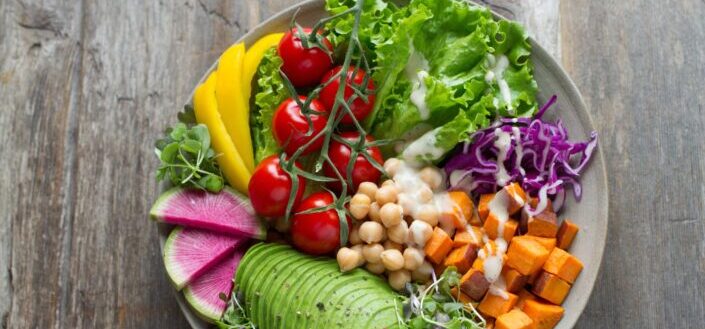
via: Unsplash / Anna Pelzer
Nothing ruins food more than chemical fertilizer. If you want to minimize the synthetic chemicals entering your body, then veer away from non-organic food you know is grown with synthetic fertilizers. In organic farming, only natural fertilizers are used. Composts, biogas, and manure are common examples of natural fertilizers used in organic agriculture.
6. You're getting sexier by the minute.

via: Pexels / Mikhail Nilov
It's no secret that organic food consumption is better for your body than consuming GMO foods. But, with all those artificial sugars and sodium taken out of your diet, you're left with organic nutrients to make you strong and healthy. You'll soon notice that you're losing fat and that your clothes begin to fit better than before.
It’s important for you to pay attention to your health. So, the next time you go to your local grocery store, check out all your choices for organic food. You can slowly start to transition to healthy food one step at a time; it doesn't have to be all in one go. What's important is you are taking steps to make your diet a little more clean and healthy.
How To Know If You're Buying Organic
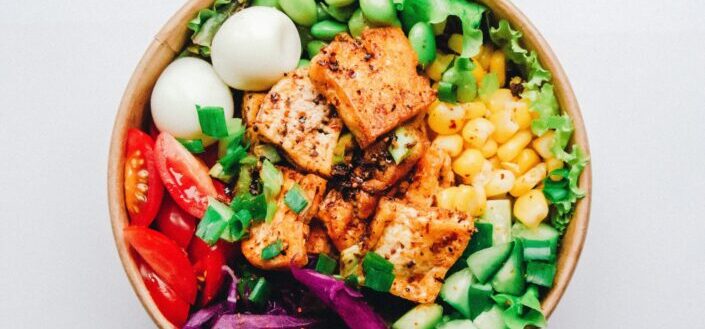
via: Unsplash / Anh Nguyen
If you want to be sure if a food item is a real organic crop, you need to know what labels and markings to look out for.
1. Break the seal.
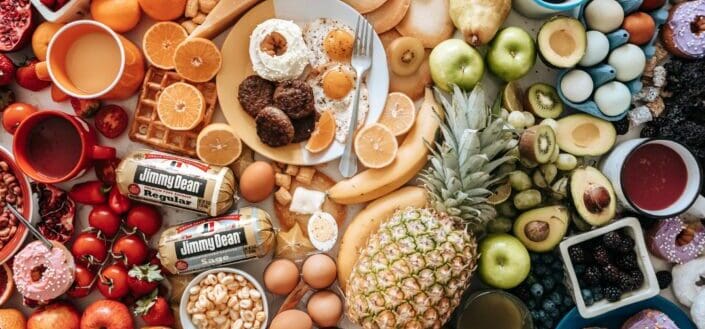
via: Unsplash / Jimmy Dean
2. PLU sticker, anyone?

via: Unsplash / Anna Tukhfatullina Food Photographer/Stylist
3. Have you been to the farmer's market?

via: Pexels / RODNAE Productions
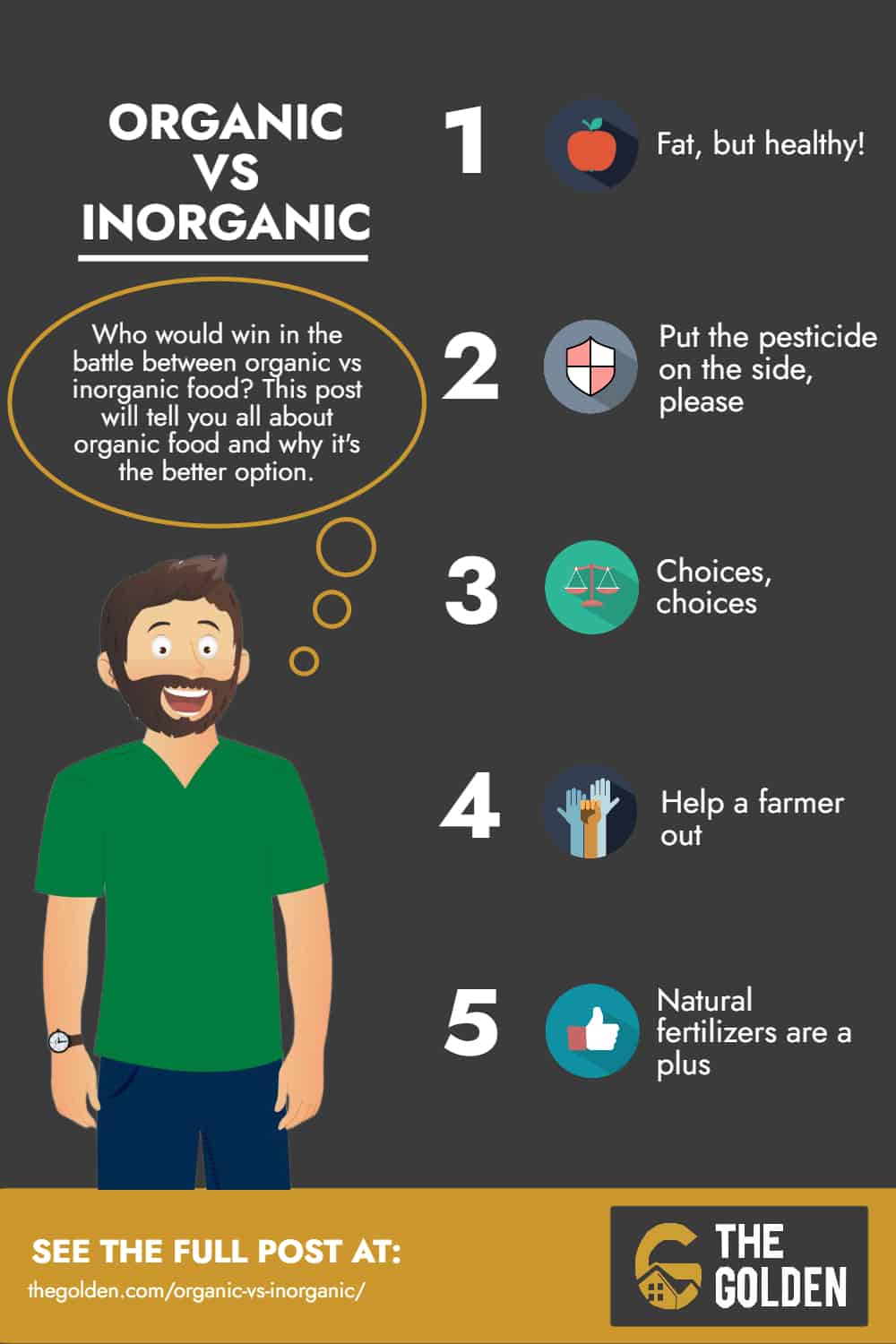
via: golden
Share This Image On Your Site
Frequently Asked Questions

via: Unsplash / Victoria Shes
Are you still on the fence about whether or not you should switch to organic food? These frequently asked questions may help you make up your mind.
Why is organic food so expensive?
As with all things, anything worth having comes at a price. Switching to organic is expensive because what's real is more costly than artificial things. It's cheaper to buy processed food than going to the market and looking for quality meats. When you use natural instead of synthetic fertilizers, it's also an added cost.
Is organic food worth the extra money?
It is. According to the vision of the Organic Trade Association, it is essential to protect the environment and enhance community well-being. Organic food is worth the extra money because it will improve your quality of life and extend it as well.
Is it safe to eat inorganic food products?
It is. Many people don't ever get to taste organic food in their lives, and they get to live a decent number of years. It is just a better option to go organic because they have all the nutrients you need to live a long and full life. They even make you look hotter. What a plus, right?
Do organic foods taste better?
Some organic food tastes better. However, most people will say that they don't. It makes sense because they don't have the preservatives and sodium that are in processed food. Switching to organic will teach you multiple ways to season your food. There are many herbs and spices you can use to add flavor to your dishes.
What are the disadvantages of organic food?
Besides price points and differences in taste, there isn't any other disadvantage other than accessibility. But in reality, that was true a while ago. Now, there are numerous sources of organic food. Even your local grocery store has organic food items on its shelves.
More Food Articles To Explore
Are you a budding food connoisseur? Check out some of these fun food articles and see which ones you can add to your food knowledge.
- If you find yourself asking, "What is a truffle?" then this is the post for you. Explore all the ways you can use truffle in your dishes for that unique burst of flavor.
- If you're a dessert lover, you should know how to keep cookies fresh. Whether you're sitting down for a coffee break or watching your favorite Netflix show, you deserve fresh cookies all the time.
- Nothing's better than sitting down with a good book, coffee, and a piece of warm bread. If you're a bread lover, you should know all the best types of bagel out there.
In Conclusion
Now, you know who wins in the battle between organic vs inorganic food.
You no longer need to ask, "Is organic food better for you?" Now that you know the difference between organic and inorganic food, you know that organic food wins hands down. It's really quite simple. Buying organic is like adding a few years to your life. Cutting down all those preservatives, artificial sugars, and sodium will make you happier and healthier.
If you're still not convinced, then I dare you to try it out. I sincerely hope you discover that everything we've said here is true. Happy eating!








